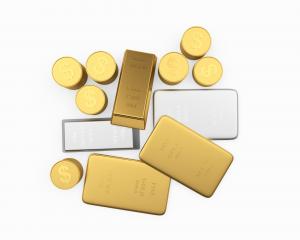Understanding the Differences Between White Gold, Platinum, and Palladium
Each of these metals has unique properties that influence their performance and longevity in jewelry”
NEW ORLEANS, LA, UNITED STATES, November 20, 2024 /EINPresswire.com/ -- White metals are a popular choice in jewelry design due to their sleek, modern appearance and versatility. Among the most common options are white gold, platinum, and palladium. While these metals may appear similar at first glance, they differ significantly in terms of composition, durability, price, and suitability for various types of jewelry. Ken Bowers, owner of The Quarter Smith in the French Quarter of New Orleans, highlights the importance of understanding these differences to make informed decisions when selecting fine jewelry.— Ken Bowers
“Each of these metals has unique properties that influence their performance and longevity in jewelry,” says Bowers. “Factors such as durability, maintenance, and personal preference all play a role in determining the best choice for a particular piece.”
Composition and Characteristics
The composition of white gold, platinum, and palladium varies significantly, which affects their weight, color, and durability.
White Gold: White gold is an alloy made by combining yellow gold with metals such as nickel, palladium, or silver to achieve its white hue. A rhodium plating is typically applied to enhance its brightness and protect the underlying alloy. This plating may wear over time and require reapplication to maintain its appearance.
Platinum: Platinum is a naturally white metal and is used in jewelry with minimal alloying. It is denser and heavier than white gold, giving it a substantial feel. Its natural color does not require rhodium plating, making it a low-maintenance option for many.
Palladium: Palladium, part of the platinum family of metals, is lightweight, naturally white, and hypoallergenic. It shares many characteristics with platinum but is less dense, offering a lighter feel in jewelry pieces.
Durability and Maintenance
Durability is a key factor when choosing a metal for jewelry, particularly for pieces like engagement rings and wedding bands that are worn daily.
White Gold: White gold is durable due to its alloy composition, but the rhodium plating is prone to wear, especially in high-contact jewelry. Periodic replating may be necessary to restore its appearance and protect the surface.
Platinum: Platinum is highly durable and resists scratching and tarnishing. Although it can develop a patina over time, this finish is often appreciated for its unique aesthetic. Platinum is ideal for heirloom pieces due to its ability to retain its integrity over decades.
Palladium: Palladium offers excellent durability and is less prone to scratches compared to white gold. Like platinum, it develops a patina over time but does not require replating or frequent maintenance.
Price and Value
Cost is an important consideration, as the price of these metals varies significantly.
White Gold: White gold is generally the most affordable option among these three metals. Its cost is influenced by the karat (purity) of the gold used and the additional metals in the alloy.
Platinum: Platinum is typically more expensive than white gold due to its density, purity, and rarity. It is considered a premium metal for fine jewelry, with a higher initial investment that is balanced by its durability and low maintenance.
Palladium: Palladium falls between white gold and platinum in terms of cost. Its lighter weight and natural white color make it an attractive choice for those seeking a balance of affordability and quality.
Suitability for Jewelry
The choice of metal often depends on the intended use of the jewelry and the wearer’s preferences.
White Gold: White gold is versatile and works well for a wide range of jewelry styles, from intricate designs to bold statement pieces. It is a popular choice for engagement rings and fashion jewelry due to its affordability and bright appearance.
Platinum: Platinum is ideal for high-value pieces such as engagement rings, wedding bands, and heirloom jewelry. Its strength and resistance to wear make it suitable for secure gemstone settings, ensuring longevity and protection for valuable stones.
Palladium: Palladium is a lightweight option for those who prefer minimal maintenance and a modern aesthetic. It is an excellent choice for rings, earrings, and bracelets where comfort and durability are priorities.
Conclusion
Understanding the differences between white gold, platinum, and palladium helps consumers make informed decisions about the metal best suited to their needs and lifestyle. Each metal offers unique benefits, from the affordability and versatility of white gold to the durability and prestige of platinum, and the lightweight convenience of palladium.
Ken Bowers emphasizes the importance of selecting a metal that aligns with both the design and intended use of the jewelry. “Each of these metals brings something unique to the table, and choosing the right one can enhance both the beauty and longevity of a piece.”
The Quarter Smith, located in the French Quarter of New Orleans, continues to guide clients through the process of selecting metals and designs that reflect their personal style and preferences, ensuring timeless pieces that stand the test of time.
Morgan Thomas
Rhino Digital, LLC
+1 504-875-5036
email us here
Visit us on social media:
Facebook
Legal Disclaimer:
EIN Presswire provides this news content "as is" without warranty of any kind. We do not accept any responsibility or liability for the accuracy, content, images, videos, licenses, completeness, legality, or reliability of the information contained in this article. If you have any complaints or copyright issues related to this article, kindly contact the author above.


